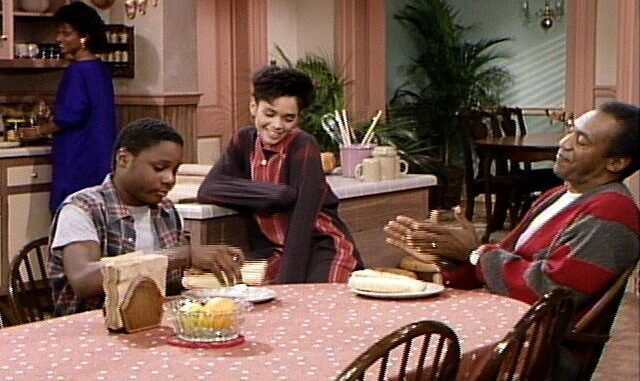
In Season 2, Episode 22 of The Cosby Show, titled “Theo’s Holiday,” the show delved into an important theme: how to raise a child with a healthy relationship with money, especially in a wealthy environment.
Theo, like many teenagers, wanted to enjoy the privileges of his parents’ wealth without truly understanding its value. He frequently asked his parents for money to buy designer clothes and dreamt of owning sports cars. Despite his parents’ consistent refusal, Theo couldn’t seem to grasp why they wouldn’t just give in to his demands, particularly because the Huxtables were a wealthy family.
Cliff plays the part of a landlord, Clair runs the employment agency, and his sisters act as landlords and service providers. Theo, eager to “live like an adult,” quickly realizes how difficult it is to balance a budget. After securing a low-paying job, he struggles to afford rent, groceries, and the luxury items he once took for granted.
The episode is a comedic masterpiece, but at its core, it illustrates a vital message about the realities of financial independence. Theo’s grand plans of living in style are immediately challenged by the harsh economic reality of limited income. His fantasy of driving a sports car and living extravagantly is brought crashing down when he realizes just how much money it takes to live comfortably—and that his paycheck doesn’t cover it all.

Through this episode, The Cosby Show addresses a key parenting challenge: teaching children the value of money, even when they grow up in a wealthy environment. The Huxtables, despite their success and wealth, are committed to raising their children with a strong sense of responsibility and grounded values. Cliff and Clair want their kids to understand that financial success doesn’t come without hard work, and that money should not be taken for granted.
Beyond Theo’s individual lesson, “Theo’s Holiday” also touches on broader societal themes. The episode subtly critiques the materialism of the 1980s, a decade marked by excess and consumerism. Theo’s desire for expensive clothes and flashy cars reflects a cultural obsession with wealth and status, and the episode serves as a reminder that true success isn’t measured by material possessions.
In addition, the Huxtables’ approach to parenting underscores the importance of balancing privilege with responsibility. Despite their wealth, Cliff and Clair don’t simply hand things to their children. Instead, they ensure their kids understand the effort it takes to achieve financial stability. This message resonates with parents in all socioeconomic brackets who want to raise financially responsible children in a world that often equates success with consumption.
“Theo’s Holiday” remains one of the most iconic episodes of The Cosby Show, not only for its humor but also for its valuable lesson on financial responsibility. Theo’s realization that money doesn’t come easily is a powerful and relatable moment for viewers of all ages. The episode highlights the importance of instilling strong financial values in children, regardless of wealth, and shows how creative, hands-on parenting can leave a lasting impact.
